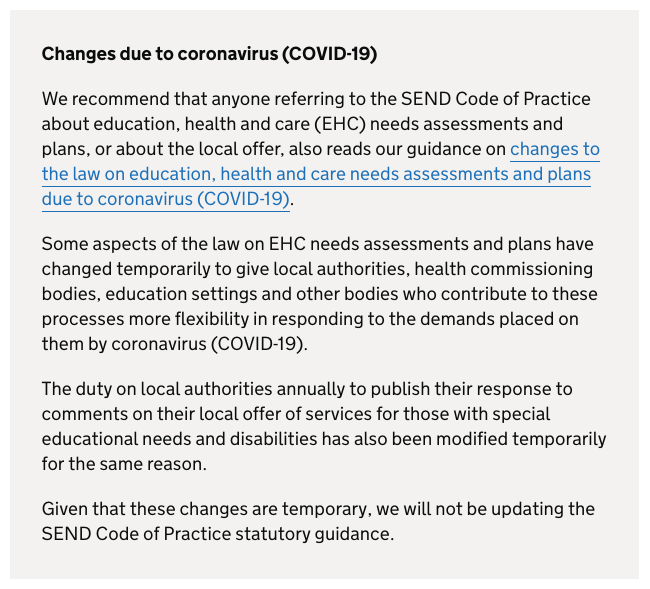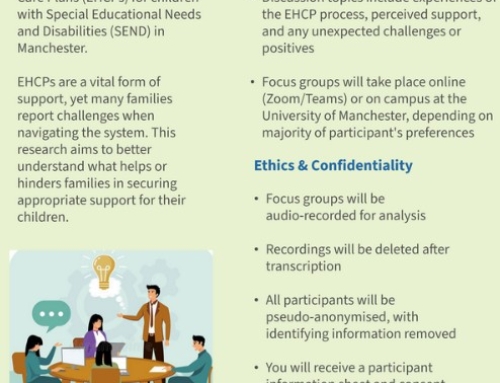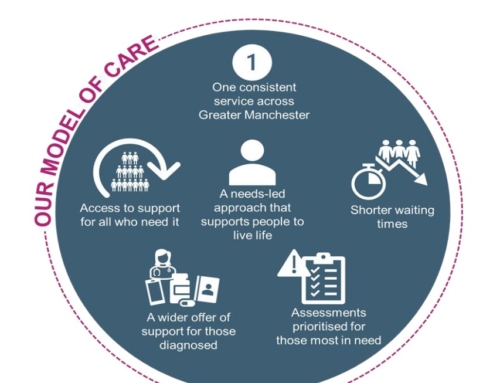Earlier this month, we wrote about the temporary changes to education, health and care legislation during the coronavirus (COVID-19) outbreak.
In that article, we shared info and commentary from Contact and from the National Network of Parent Carer Forums (NNPCF), as well as a joint ministerial letter from Ministers Vicky Ford (Parliamentary-Under Secretary of State for Children and Families) and Helen Whately (Parliamentary Under-Secretary of State for Care) to children and young people with SEND and their parents & carers.
Today, we would like to share with you a factsheet from Information, Advice and Support Manchester (IASM), which condenses the official government guidance and highlights what has and has not changed.
In this factsheet, IASM describes:
- Local authorities’ and health bodies’ decision-making process
- Securing or arranging provision in an EHC plan under the modified Section 42 duty
- Timescales for EHC needs assessments and plans
- Cases in progress as of 1st May 2020
- New ways of working to manage the EHCP Processes
- Annual reviews of EHC plans
- Rights of Appeal to the First-tier Tribunal (SEND)
- Annually publishing a response to comments on the SEND Local Offer
It is worth noting that, while there have been temporary amendments to the law, the following duties have not changed:
- The local authority (LA) must still consider requests for a new EHC needs assessment or a re-assessment.
- Where the local authority decides to carry out an EHC needs assessment, it must still secure all of the required advice and information in order to be able to issue a plan.
- Where the local authority decides to carry out an EHC needs assessment, it must still secure all of the required advice and information in order to be able to issue a plan.
- The LA still has a duty to have regard to the views and wishes of the child/YP and the child’s parents.
- The local authority must continue to have regard to the guidance on the handling of delays.
- One of the timescales relating to EHC plans is giving parents or the young person at least 15 days to give views and make representations on the content of a draft plan. There is no change to the law here.
- A final EHC plan must still include all of the required advice and information.
- The provision set out in the final plan should be in line with the statutory requirements for any EHC plan and not be limited because of the circumstances of COVID-19.
- Reviews and re-assessments of EHC plans must still take place (although there can in some circumstances be flexibility over the timing of an annual review).
- Decisions, including those over the content of any EHC plan, must continue to be made in accordance with the statutory framework and be based on the individual needs, provision and outcomes for the child or young person.
- Local authorities must already have completed this year’s required transfer reviews for a child or young person moving between key phases of education (transfers into or between schools, moves from secondary school to a post-16 institution or apprenticeship, or moving between post-16 institutions). There is no change to the statutory deadlines for these reviews. Where, exceptionally, completion has been delayed, these transfer reviews need to be finalised as a priority.
- The duty on education settings to admit (section 43)
- The timescale for education settings to respond to a proposal to name them in an EHC plan
- Complaints and rights of appeal of parents and young persons
- Rights of Appeal to the First-tier Tribunal (SEND)
You can read about these in more detail on IASM’s Factsheet #39.
Any dilution of the rights of families is a concern and we will continue to work with the Department for Education to review these easements and we will be seeking for them to be lifted as soon as possible.







[…] Read the factsheet. […]